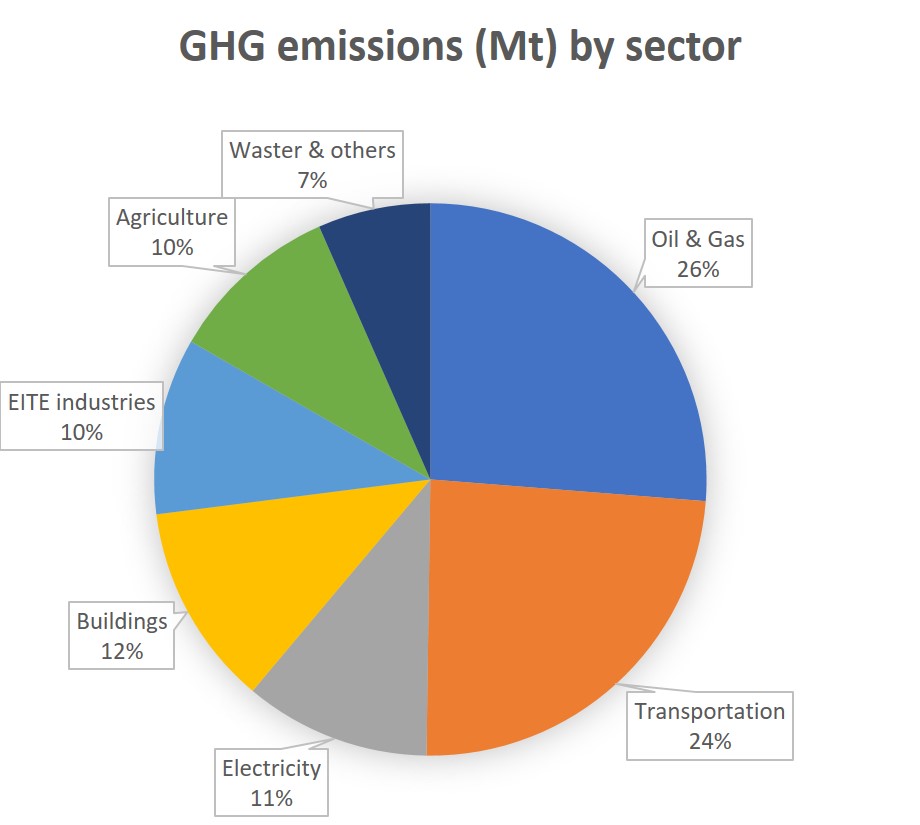Search ZEVREV.org
Why a ZEV mandate?
GHG emissions from transportation accounted for 24% of Canada’s total emissions in 2015, that is, ONE in FOUR tonnes of GHGs was from TRANSPORTATION. Increasing the market share of ZEVs would reduce Canada's GHG emissions. This, in combination with other market-based policies and smart regulations, will enable Canada to meets it Paris climate deal target (30% reduction from 2005 levels by 2030).

There are several policy options for increasing the market share of ZEVs including providing incentives for potential buyers, developing an adequate infrastructure such as a network of charging stations for electric vehicles, and implementing a ZEV mandate. Professor Mark Jaccard of Simon Fraser University (SFU) has suggested that having a balanced and flexible ZEV mandate with a target of 10% of new vehicle sales, that is one in ten new cars sold would be a ZEV, in 2020 and increasing to 70% by 2030 could lead to a 40% reduction in transportation-related emissions. A study by the Simon Fraser University indicates that the current supply of electric vehicles is inadequate, and that increasing the supply to 56 models would greatly increase market share. In a report in 2017, the Ecofiscal Commission argued that a ZEV mandate would be more cost effective than some other measures. So, an evidence-based, balanced and flexible ZEV mandate could be both economically sound and effective.
